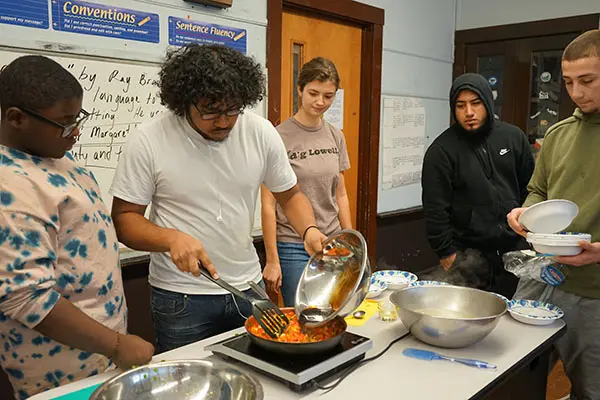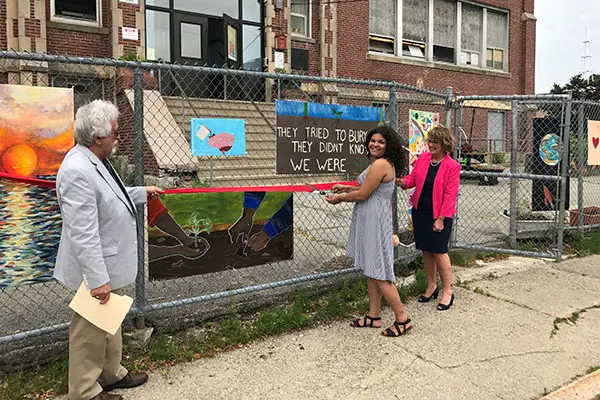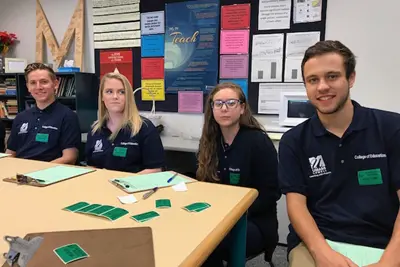Center for Program Evaluation Works with Campus, Schools and More
 Image by Career Academy staff
Image by Career Academy staff
02/08/2018
By Katharine Webster
When an alternative program for Lowell High School students decided to seek a U.S. Department of Education (DOE) grant to expand, its leaders asked UMass Lowell for help.
To get the grant, The Career Academy’s leaders needed experts to evaluate their students’ progress. They chose UML’s Center for Program Evaluation, which offered a holistic “empowerment evaluation” – not just data analysis, but also active collaboration to help the school improve programs and services.
The Career Academy won the grant – worth $500,000 per year for up to five years – and it is now a full-service community school that partners with community organizations to offer programs, internships and social support ranging from a food pantry to English language classes for students and their families.
With help from the Center for Program Evaluation, it has demonstrated improved behavior and achievement among its 150 day and evening students.
“They provide us tangible suggestions for improvement,” Principal Megan O’Loughlin says of the center’s faculty and staff. “They’ve been very helpful in planning next steps.”
“They’re always interested in getting small grants to help us, too,” says Lauren Campion, who manages The Career Academy’s community partnerships and programs.
 Image by K. Webster
Image by K. Webster
“The primary focus for most of us is education, but we’re a very diverse, interdisciplinary group,” says Assoc. Prof. of Education Jill Lohmeier, the center’s director. “School districts often have a need for program evaluation and the College of Education has a relatively new Ph.D. in research and evaluation in education, so our students can get experience using different evaluation methods.”
Since its founding four years ago, the center has worked with school districts including Lawrence, Everett and Methuen, and collaborated on several grants with the Lowell public schools.
College of Education faculty and staff have gone out of their way to help The Career Academy succeed. Assoc. Prof. Xiaoxia Newton applied for and won a $1,000 Chancellor’s 2020 Grant and a $2,000 College of Education grant (from the Josephine and Lucy Ragozzino Fund) to help the school pay for a day of community service last spring.
 Image by Lauren Campion
Image by Lauren Campion
Center manager Shanna Rose Thompson and Bangsil Oh, a Ph.D. candidate in educational research and evaluation who is a part-time research assistant at the center, trained some of the students to use photography to document and reflect on the day, then talk about their photos to share their perspectives – a participatory research technique known as PhotoVoice.
Leah Ferullo, who is earning her doctorate in leadership in schooling, also assisted with the PhotoVoice training. She says she was initially skeptical of the technique but ended up being deeply moved by the students’ presentation.
“I wasn’t just on the sidelines with this grant,” she says. “I felt like I was actually a part of it and learning that this is how you gain insight into people’s stories.”




